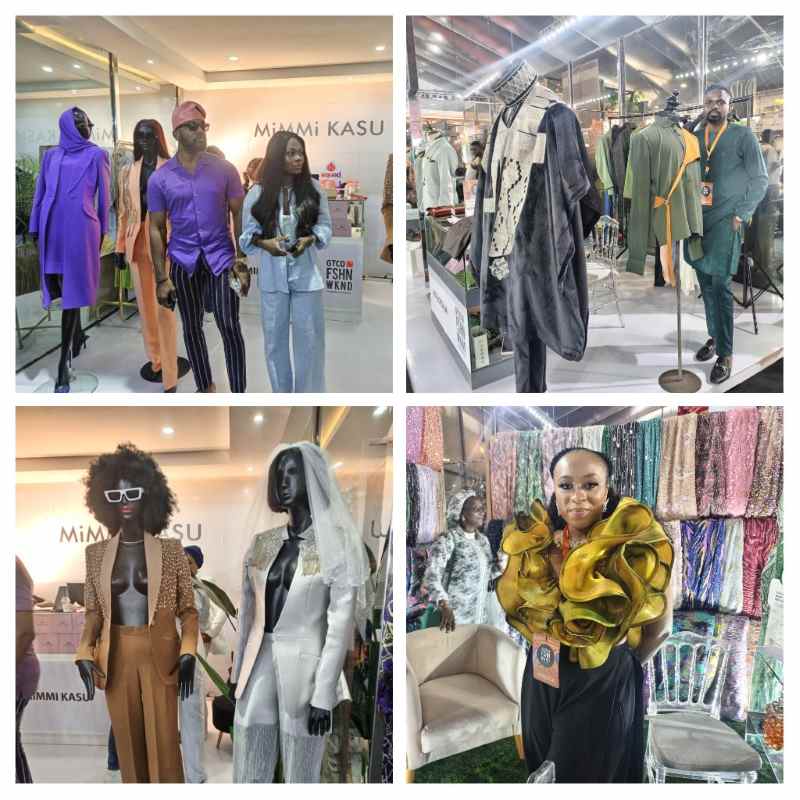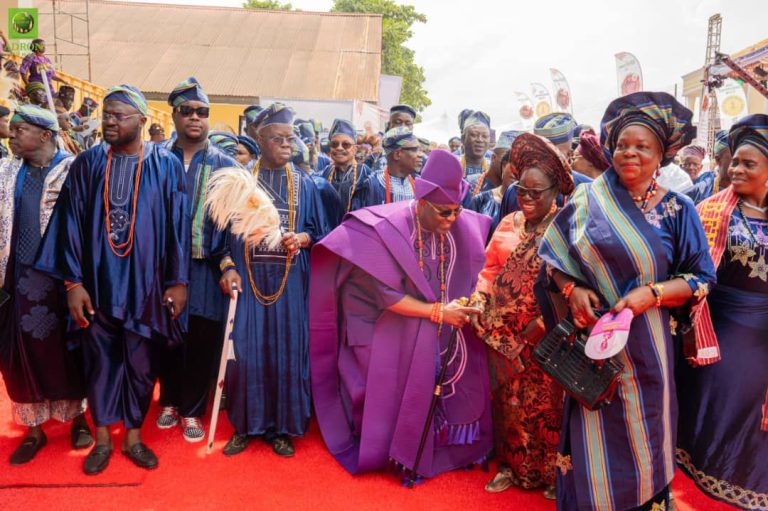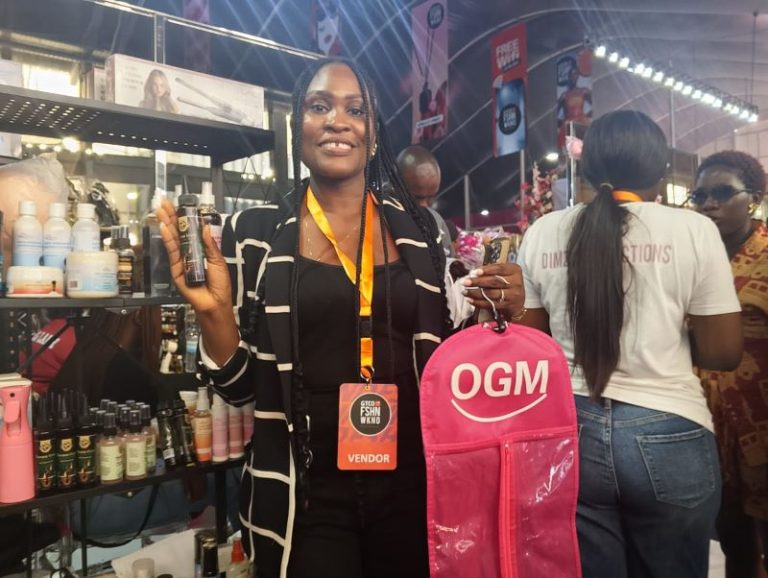
…SAY ECONOMIC HARDSHIP AFFECTING BUSINESS
By Okosun Dennis

As the 6th Edition of GTCO Fashion Weekend was rounded off in Lagos on Sunday, 12th November 2023, the fashion weekend paraded some of the best and the most elegant designers under one roof speaking the same language to explain different things – fashion and beauty of fabrics.
Some of the designers that spoke to our correspondent gave different expressions, while at the same time, some applauded GTBank which created the atmosphere and wonderful ambiance to showcase their creative ingenuity galvanizing into different designs for multifarious social and cultural persuasions.
From their designs, they paraded wear for toddlers to very old men and women; different hair attachments, body care creams, lotions, scents, streetwear, Agbada for special traditional occasions, and lots more.
Speaking with Chiazor of Buifabrics stall, she exuded beauty as she spoke candidly about her dress sense. According to her, she laid it bear as she emphatically explained the challenges the economic crunch has thrown at designers considering that some of the fabrics are not all locally sourced.
“The economy has not smiled on us as most of the fabrics are imported. This is a special fabric for special events, specifically for weddings and all kinds of celebrations and festivals.”
On her expectations, She explained, “My expectations is sale, sale and more sales and good visibility for the brand; let our customers know us on a personal level because GTCO Fashion Weekend is an excellent opportunity to showcase our brands, what we can do as designers and lots more.
“In our designs, a lot of innovation and machinery are brought to bear. You know in Nigeria, we don’t produce some of these fabrics. A lot of them are imported. As the middleman, I buy the best of the world.
“Unfortunately, the economic situation is affecting business as you know, fabrics are luxury. I know in life, there are always celebrations and the celebrants have to look good as well. So, fabrics are essential. To GTCO, I duff my hat,” she reiterated.
However, PatrickSlim Designs, who has been in the fashion business for six years noted, “My expectations are to have more visibility of the brand, interact with more people. At the moment, nobody has taken orders but has been able to take a few measurements and collect contacts.
“I have been in the business for six years. For the Agbada, the fabrics are costly and we also have to go outside for the designs. This is a Hausa design with stitches. However, the cost of production has gone up as more fuel is consumed using the generator.”
Speaking on the dominance of streetwear in most events, PatrickSlim noted that “Despite the young going for jeans and other street wears, every weekend, there are still events like “Owenbe,” marriages, and burials that require traditional wears. It has really changed as more people go for classic traditional wear like Agbada to reflect the culture, mood, and times of such events.
“I wear jeans myself but sometimes, I go for the African traditional brand. People are still embracing the African dress and the way you look when you wear an African brand makes you unique.
“Apart from Agbada and the likes, we design other smart dresses depicting other traditional brands like the Oyo people as you can see in some of these designs (as he conducts the correspondents round explaining). These are things we can wear casually and still look good on you.”
Also bearing his mind was Kaycee Chima of Mimmi Kasu, who thanked GT Bank for providing GTCO Fashion Weekend, an excellent opportunity for designers like himself to showcase their brand and participate actively in the fashion show.
“I was here last year and have no doubt that this year’s would present the best opportunity. “We hope to get exposure. We were here last year and the impact was quite good on our brand and here again this year, hoping to get more clients.
Explaining the choice of fabrics how they source for them and the intricacies involved, “We made these for clients, get their measurements and cut to sizes. These are custom-made. The production process is quite intricate – fabric selection, cutting, and finishing stuff – to make this beautiful work you see here.
“One of our biggest challenges is the sourcing of fabrics, due to the exchange rate in the country, we have to seek alternative means, and the fabrics we are getting from importers, to say the least, some import inferior stuff – lesser quality than what we are already used to just for them to be able to sell at affordable prices to their clients. We wouldn’t mind buying at high prices but they wouldn’t even bring good ones.
“So, we end up looking for quality fabrics ourselves and the whole process is daunting. It’s actually really challenging for us. We used both locally sourced materials and imported,” Chima of Mimmi Kasu reiterated.




